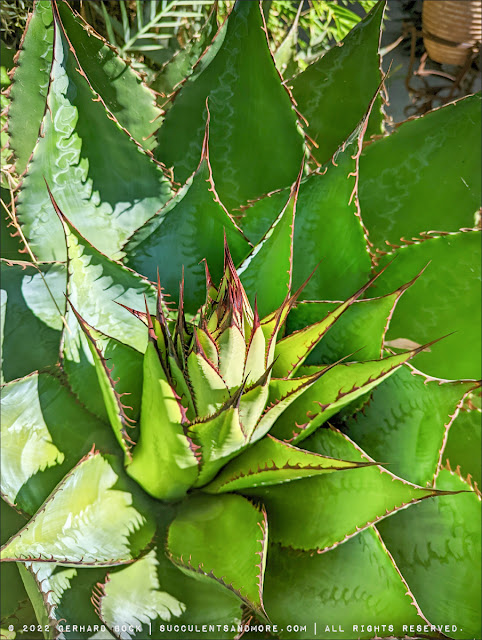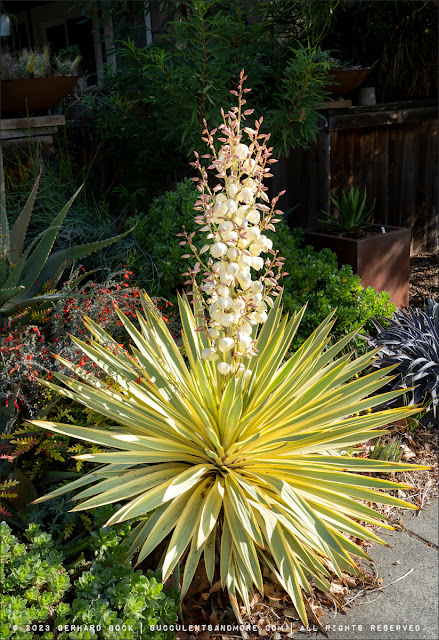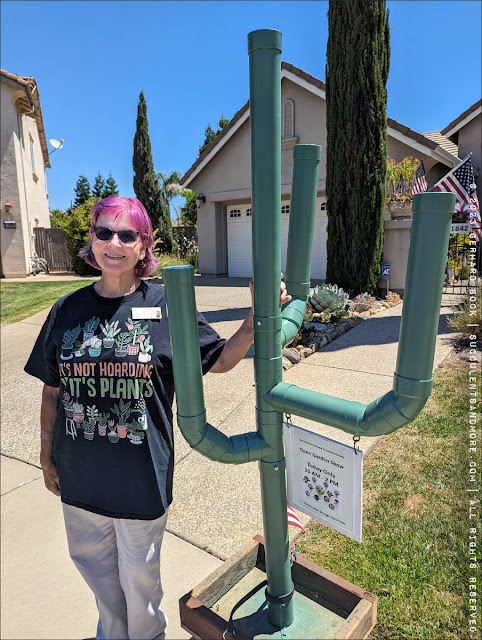RIP, cow horn agave (2015-2023)

Last September , the cow horn agave ( Agave bovicornuta ) in the front yard started to send up a flower stalk: September 4, 2022 It took until May for the flowers to fully open. This is what the flower stalk looked like on June 23, 2023 (excuse the poor quality; these photos were taken through a window screen): June 23, 2023 As you can see, the flower stalk had a precarious lean to it. I had visions of it toppling over, crushing everything in its path. On June 28, 2023, my wife and I took down the flower stalk. It was heavy, and I had a hard time holding it steady as my wife sliced through it with a reciprocating saw. Here it is in the driveway, all 12 ft. of it: 12 ft. flower stalk in the driveway Rosette right after we cut down the flower stalk Like most agave species, Agave bovicornuta is monocarpic, i.e., it dies after flowering. In the weeks after we’d removed the flower stalk, the rosette was losing more and more of its color as it was shutting down: The lower leaves began to




